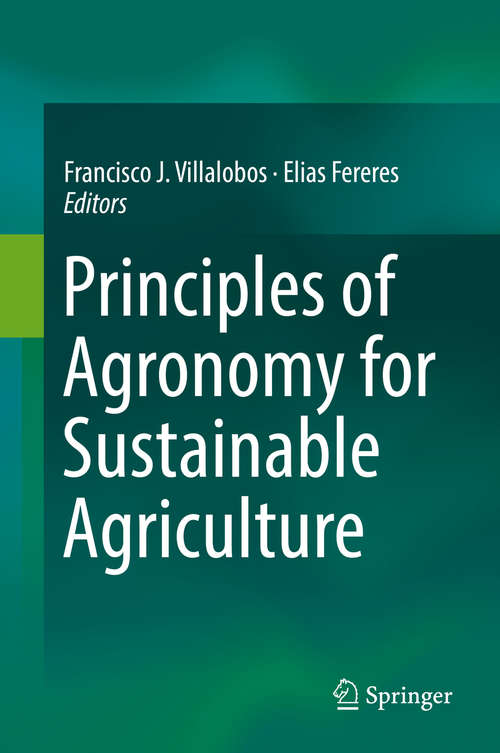Principles of Agronomy for Sustainable Agriculture
By: and
Sign Up Now!
Already a Member? Log In
You must be logged into Bookshare to access this title.
Learn about membership options,
or view our freely available titles.
- Synopsis
- This textbook explains the various aspects of sustainable agricultures to undergraduate and graduate students. The book first quantifies the components of the crop energy balance, i. e. the partitioning of net radiation, and their effect on the thermal environment of the canopy. The soil water balance and the quantification of its main component (evapotranspiration) are studied to determine the availability of water to rain fed crops and to calculate crop water requirements. Then it sets the limitations of crop production in relation to crop phenology, radiation interception and resource availability (e. g. nutrients). With that in mind the different agricultural techniques (sowing, tillage, irrigation, fertilization, harvest, application of pesticides, etc. ) are analyzed with special emphasis in quantifying the inputs (sowing rates, fertilizer amounts, irrigation schedules, tillage plans) required for a given target yield under specific environmental conditions (soil & climate). For all techniques strategies are provided for improving the ratio productivity/resource use while ensuring sustainability. The book comes with online practical focusing on the key aspects of management in a crop rotation (collecting weather data, calculating productivity, sowing rates, irrigation programs, fertilizers rates etc).
- Copyright:
- 2017
Book Details
- Book Quality:
- Publisher Quality
- ISBN-13:
- 9783319461168
- Publisher:
- Springer International Publishing, Cham
- Date of Addition:
- 03/27/17
- Copyrighted By:
- Springer
- Adult content:
- No
- Language:
- English
- Has Image Descriptions:
- No
- Categories:
- Nonfiction, Technology
- Submitted By:
- Bookshare Staff
- Usage Restrictions:
- This is a copyrighted book.
